Irish born Michael Dowling, CEO of Northwell Health, is the man handpicked by Governor Andrew Cuomo to be the New York's crisis manager for the state's coronavirus response.
There's no denying it, the fight against the coronavirus in the United States has become a battle between reality and unreality, between hard facts and half-baked misinformation.
On the one hand, you have our cautious medical experts, on the other, you have politicians desperate to secure their own succession. It's a witch's brew of conflicting agendas broadcasting daily and confusing almost as many people as it enlightens.
But Irish born CEO Michael Dowling, Governor Andrew Cuomo's hand-picked coronavirus response person, is in no doubt about which side needs to win the information war.
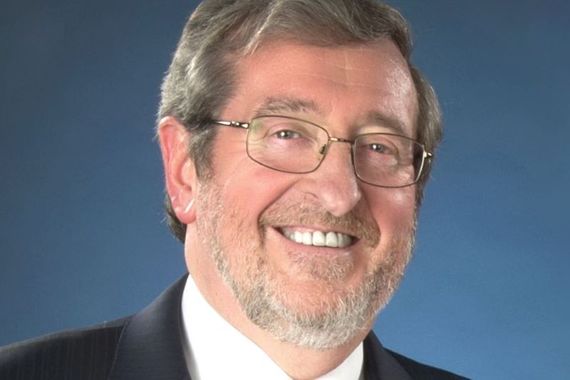
“It's not an experience that many of us have ever been in the middle of before. It's unbelievable what we're seeing. When I'm visiting the hospitals now, and by the way, every hospital here is now a COVID-19 hospital, it's laying waste to them all.
One of the lessons the coronavirus has already taught him is how the fortune we all were before all of this happened. “We will never again be the same. How we work won't be the same, how we behave won't be the same, how we relate to one another. This thing will have major implications for the rest of our lives.”
It should also force us to think about how we prepare for potential pandemics in the future he says because we live in a very integrated global world and we have to face that reality now.
“And by the way, from the United States point of view, if we had some visionary leadership now we would be taking a leading role worldwide to figure this out and work with all the other countries like China and Korea and Russia collectively, working as a global entity led by the United States, to figure out how to deal with the potential disaster caused by epidemics like this.”
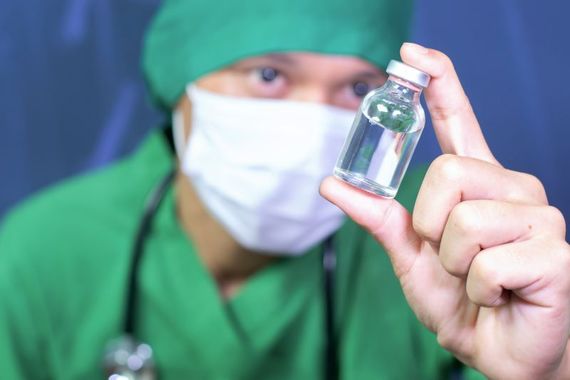
“I doubt that that is going to go on, given the current leadership, but that's what we need to do going forward. I've been on the phone all morning with the CEOs of all the big health systems of the region. What we're discussing is how we should work together. We often compete but this pandemic forces us to confront a new reality, one that forces us to consider the fragility of our environment.”
Two months ago we were all going out to restaurants and bars, going to work or stuck in traffic Dowling says. “And we thought we were indestructible until all of a sudden there's this virus that within days and weeks can totally disrupt everything that we thought was impenetrable.”
When you say things are going to change for us completely, what does that mean? The Irish run a massive hospitality industry here in the city. Are people going to go back to bars for example?
“Many of these small businesses operate on a month to month on very short cash flow. They don't have the ability to sustain themselves through closures over a long period of time. So one of the conversations will be about the dangers of a return to work that's too quick. And when this really is over I doubt that we'll slide back into our old ways anytime soon, because I think mentally people will always in the back of our minds be thinking about this time. That's going to have a knock-on effect.”
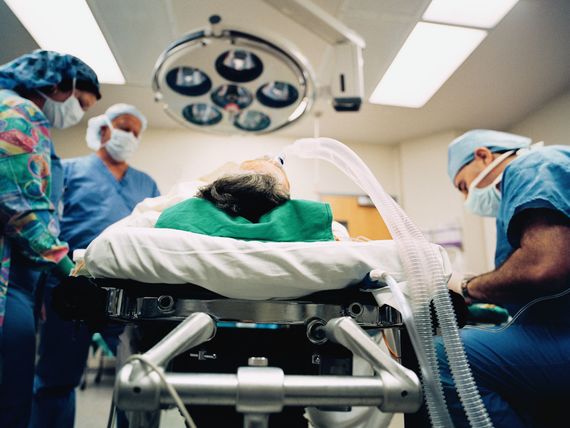
Are we going to be stuck in a cycle of lockdown and release, with deaths increasing and then decreasing, as we deal with a first wave and then the second wave or third wave maybe?
“Even if there were no new cases anywhere as of today, the people who are already sick now would continue with us for weeks and weeks,” Dowling continues. So we need the federal government to step up testing and containment quickly.
Isn't testing one of the keys to stopping the spread, is that correct?
“Right. We've been doing a lot of testing, but we have been primarily testing those that are already sick in the hospitals. We need to increase testing going forward and that's a discussion that's going on at the moment. To what extent should we expand testing and how do we determine who's immune and who is not immune”? By the fall we likely won't be the hotspot we are today, but I don't think people will feel mentally safe for a long time.”
Is there pressure being placed on medical spokespeople like yourself to give the all-clear to the workforce to go back to work before the danger passes?
“Well, that's a danger here. All businesses are losing a lot of money. I mean in Northwell alone I'm losing hundreds of millions of dollars a month and that's true for everybody. These are massive numbers. I'm sure everybody would like to get back to business as quickly as possible, but if you say to everybody it's okay, please get back out onto the streets, please have your parties and weddings, you can reactivate the transmission again and you're back to having a bigger problem the next time around."
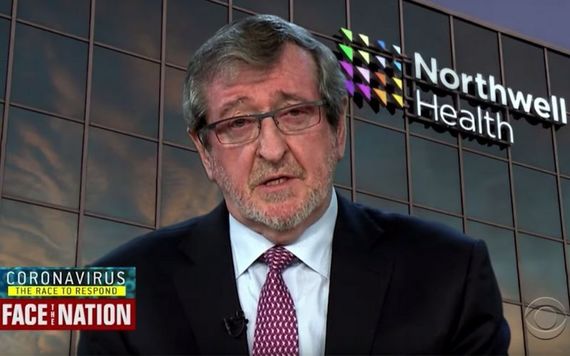
We simply have got to wait and let science dictate when we can get back into work, not let the politicians dictate to the public health officials when the workers come back, Dowling says.
Do we have any notional back to work date yet? “I don't think we know. My guess is sometime in May you'll will see a trickle back to work, but the timing here is key. If you get the timing wrong, you can cause another massive flare-up. I wish we could select a date and just say it's resolved now. That would be nice. But that's not the case.”
It's unusual to reach your sixth or seventh decade and to see something that you've never seen before he says. “I mean people have experienced the horrors of war, in Vietnam and elsewhere, but they were localized. You didn't see the country shut down. People are told, stay in your home, don't come out and greet your friends, don't shake a person's hand, nobody's ever seen anything like this before.”
And the sheer cruelty of it, that simple human connection is actually the thing that endangers you. “Absolutely. But we will prevail and in the end, we will look back on it says that was an unforgettable experience, but as long as we learn from it as individuals or as a community or as a society there can be an upside. It can give you a new perspective on life.”
Well, two quick questions to end. The first is about air travel. Will, there be a time this summer or even into the autumn there, it's safe or moderately safe to do that again? What's your perspective on that?
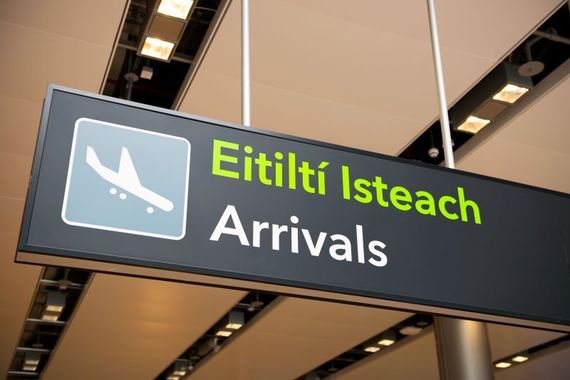
“Well, I think that could be a couple of months away. Some nations may open. But they might not fully open all destinations, depending on the nature of the disease in various places. In May they may open travel up to ten countries but not the other five, you know, so there would still be restrictions, I think we are a long ways away from a complete opening up of air travel. I think that there will still be restrictions for a long time.”
My last question is there's been a lot of misinformation, deliberate or otherwise out there. Is there anything that you wish people would know about this virus, is there a message you want to send above all the noise that's out there?
“Stay home. Isolate. The best chance we have to stop the spread is for us all to stay indoors and not flood our hospitals who are already struggling. Listen to the medical experts not the pundits or the politicians.”
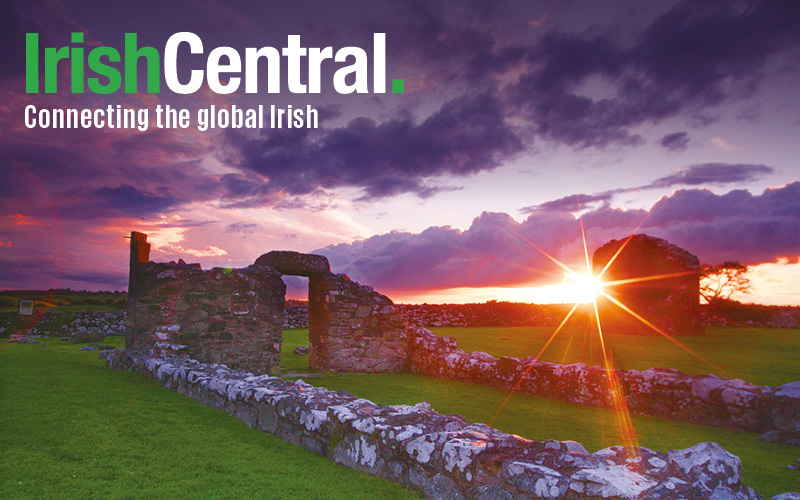



Comments